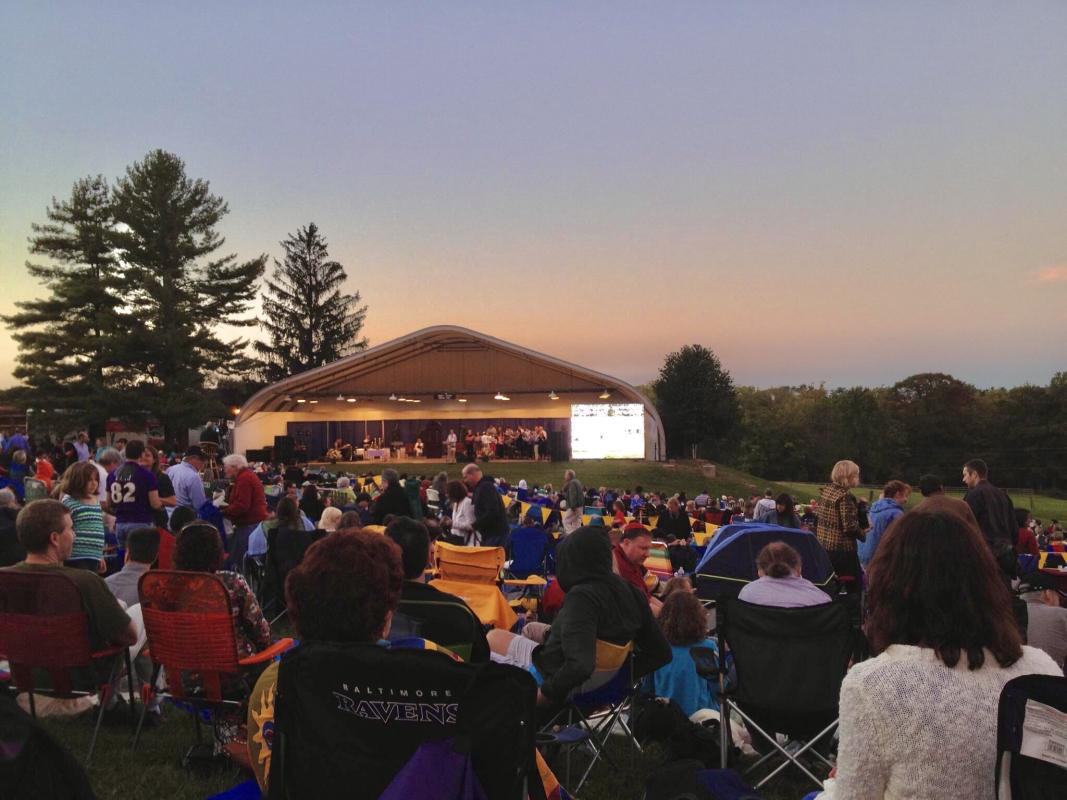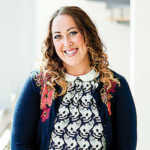
What started as a little idea 15 years ago to attract more families to Baltimore Hebrew Congregation’s night-before Rosh Hashanah service—the start of the Jewish New Year—has morphed into one of the biggest yearly events for Baltimore’s Jewish community.
It feels almost like a pilgrimage at this point, with cars snaking their way every fall to Hunt Valley’s Oregon Ridge (with an extra prayer said for good weather.) Attendees, weighed down with canned goods for donation, snag their green space in front of the bandstand with blankets, chairs, and dinners that range from Royal Farms fried chicken to elaborate feasts. You are bound to find lots and lots of challah and honey and a few rainbow cakes in the crowd.
Yearly attendance hovers right around 6,000, though Baltimore Hebrew is expecting far less this coming Monday, September 6. (Interested attendees can register, here.) But after last year’s cancelation due to COVID, any gathering feels like a gift, says Rabbi Elissa Sachs-Kohen. Why is this night different? (Oops wrong holiday.) “There is a different feel this year,” she says. “I do think the beautiful part of that feeling is we can come together safely for the first time. We are mindful of that responsibility.”
And like all wise rabbis—though she is still working on her sermon—Sachs-Kohen says there is a line that can be drawn from what Rosh Hashanah represents to this moment in time of the pandemic. “I think we’re all looking for renewal,” she says, pointing out that the New Year is always followed by Yom Kippur, the Jewish Day of Atonement. “All renewal requires us to look at the way we are going to move forward. And even in a time of renewal, there’s still plenty that isn’t perfect. We get that fresh start, but what do we do with it?”
Getting to figure that out in the crisp air, under dimming skies (and maybe a few stars), surrounded by nature, is not lost on her. “In some ways, I think that [our event] is a totally modern expression of something completely ancient.” In archaic times, there would have been groups gathering outside the temple creating a “connection with the holiness elements of a picnic and reunion.”
That reunion idea is one that makes Under the Stars so successful. Guests know they’ll run into someone they know—from their own temple, from school, from camp, from their neighborhoods. “An awful lot of us yearn to feel bonds across those segments,” Sachs-Kohen says.
During one of the early years (Sachs-Kohen has been there all 15), as she finished the service, a grandmother came running up the bandshell. “She said to me, ‘This is the first time all the generations of my family have come together for a service because we all belong to different places.’” It’s a sentiment she’s heard again and again.
And with declining attendance at synagogues throughout the country, more and more temples are looking for “alternative” ways to attract and retain members. Fifteen years ago, Baltimore Hebrew was just ahead of the curve.
“We presented it as an opportunity,” Sachs-Kohen remembers about pitching to the board after a member suggested the idea. “I’ll forever be impressed,” she says, that leadership not only loved the suggestion, but understood the impact. The high holy days are the reason many people belong to temples and how many retain membership, but Baltimore Hebrew’s idea was to “give it away for free.” She wondered, at the time, if this “leap of faith off a cliff” would work. And the answer was yes.
Even 15 years in, Sachs-Kohen still gets butterflies when she looks out at that vast audience. There are those hanging on her every word, singing and praying, and those that sort of listen while watching their kids run down the big hill or kick a ball around. But they are all part of the experience. She anticipates that everyone will feel thankful to be together again.
“I hope they are feeling gratitude for the millions of people who have done what needed to be done to get us to this point,” she says speaking of those who are vaccinated. “It’s been really hard, but I hope they feel hope.”
